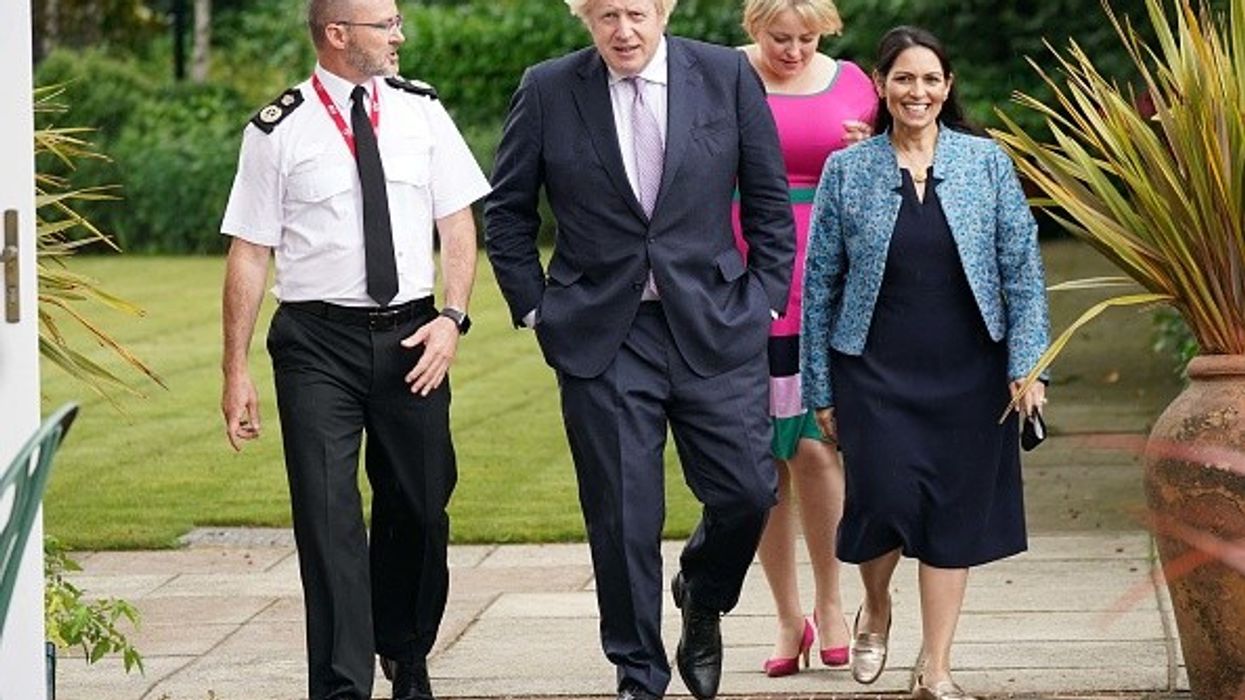UK government today (27) launched its new crime reduction plan amid concerns raised by MPs and campaigners over a series of “discriminatory” proposals, including extension of police's stop-and-search power.
Launching Beating Crime Plan, UK prime minister Boris Johnson said that offenders guilty of anti-social behaviour should be in “fluorescent-jacketed chain gangs” publicly paying for their crimes, recent reports said.
“If you are guilty of antisocial behaviour and you are sentenced to unpaid work, as many people are, I don’t see any reason why you shouldn’t be out there in one of those fluorescent-jacketed chain gangs visibly paying your debt to society. So you are going to be seeing more of that as well,” Johnson told reporters on Tuesday (27).
Other proposals in Beating Crime plan include stop and search, a trial of “alcohol tags” and a named police officer for every Briton.
Meanwhile, MPs and human right campaigners have been raising objections over the planned ease of restricted use of stop-and-search, a practice which often said to disproportionately target ethnic minorities.
Liberty said the permanent relaxation of search powers might “compound discrimination in Britain and divide communities” while the former shadow home secretary, Diane Abbott, said it was “alarming and counter-productive.”
Human rights groups including Liberty and criminal justice NGO Fair Trials said the powers were “discriminatory” and “repeatedly lead to the racist profiling of Black and other racially minoritised ethnic groups”.
Johnson, however, has earlier defended his stance saying its a “kind and a loving thing to do”.
“The people who often support stop and search most passionately are the parents of the kids who are likely themselves to be the victims of knife crime,” The Guardian quoted Johnson in a report.
Stop-and-search powers were restricted in 2014 by Theresa May when she was home secretary, limiting it to immediate violent threat, during a limited number of hours.
Those restrictions were eased by current home secretary Priti Patel in 2019 to allow police to carry out searches 24 hours a day and on grounds of possible violence. These changes are set to be made permanent under the Tories’ new crime reduction plan.




